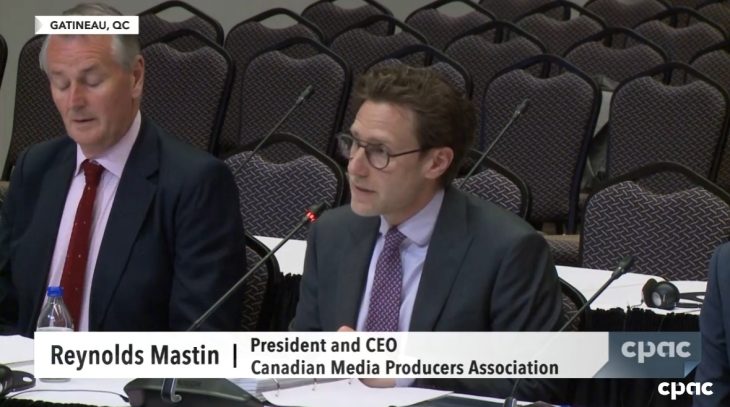
By Ahmad Hathout
The public broadcaster and a trade group representing independent producers are floating the use of platform home pages as a possible way to amplify the discoverability of Canadian content.
Representatives from CBC/Radio-Canada said Wednesday that the CRTC should ensure that discoverability and marketing of such content are not counted toward distributors’ contribution requirements, including both the base financial component and traditional Canadian programming expenditures (CPE). The reason, according to CBC execs, is that vertically integrated broadcasting giants already support discoverability and promotion of CanCon “as a regular course of their business.”
Indeed, VIs including Bell and Rogers have said during this proceeding – which examines the market dynamics between broadcasters and programmers – that they already have an incentive to promote Canadian content as a rationale for the commission not to impose additional regulatory burdens.
The public broadcaster, however, is not pressing the CRTC for prescriptive rules.
“We’re recognizing that some platforms, and maybe some that don’t even exist today, will have different ways, different business models, different ways of reaching their customers. Different go-to-market strategies,” Jon Medline, executive director of policy and international relations, said Wednesday.
“What we’re saying is that those platforms that are captured will devise their own way, the best way that they can to provide prominence,” he added. “Now, that may be preloaded apps. That may be home pages or banners or third-party marketing or marketing with on their platforms themselves.”
For the Canadian Media Producers Association (CMPA), prescriptive rules shouldn’t be ruled out. Specifically, the trade group wants the CRTC to examine the possibility of including on distributor home pages not just Canadian service apps, but Canadian content that is behind those apps.
“If you go on the Apple landing page, the top are programs. And below it, you have channels or apps,” said Alain Strati, CMPA’s senior vice president of industry, policy and general counsel.
“So you can do both at the same time,” he added. “And you should do both because you’re promoting first and foremost Canadian programs. And at the same time, the availability, hopefully, of those Canadian programs from Apple TV+, from Amazon Prime Video, as well as from Canadian services and Canadian apps.”
Discoverability is just one component for independents trying to break through in a tough market, according to the CMPA. Reynolds Mastin, the group’s president and CEO, described the problematic nature of large platforms having ownership of both content and its delivery system, suggesting programmers don’t have much leverage in negotiations.
“What we are seeing is – as the market has consolidated – there are fewer and fewer buyers and fewer doors for them to knock on,” said Lisa Broadfoot, CMPA’s vice president of industry and business affairs. “So the terms they are getting are quite onerous and quite restrictive in their abilities to exploit their own programs.
“You can see this especially with kids programming. We’ve heard a lot of interveners talk about how there’s no market for kids anymore and we don’t want in this business anymore. And what that has meant is that there are no doors left for producers to knock on. So what we see in a market of extreme concentrated power is that imbalance that producers … if they want to have access to audiences and get their programs made and get them out there and hopefully monetize them in other ways, they are more or less forced to accept terms that are difficult for them to monetize and difficult for them to exploit elsewhere just to get their content seen and out there.”
Broadfoot said independent producers are specifically on the backfoot when it comes to negotiating rights and financial and creative control of the programs.
“A good example would be a broadcaster without a French service asking for French-language rights just because they can,” she said. “So we see those kinds of rights grabs. We see extended license terms, coterminous rights so that their ability to exploit your program goes for years and years and years as you go through multiple seasons of a show.”
The CMPA is asking the CRTC to ensure that negotiations are conducted in good faith by having “guardrails” and “rules of the road” around those issues.
The group is also recommending that the CRTC consider having a class-based confidential process for undue preference complaints to ensure that individual programmers are not met with reprisals from buyers for having filed against them.
“No producer is going to file an undue preference complaint individually,” Mastin said. “It will never happen because they would be concerned that that particular buyer will never pick up one of their shows again. And that’s why as part of our submissions, we’re proposing filing a Part 1 via a class mechanism so that there’s not any one individual producer feels that they are putting their business at risk by filing an undue preference complaint individually.”



